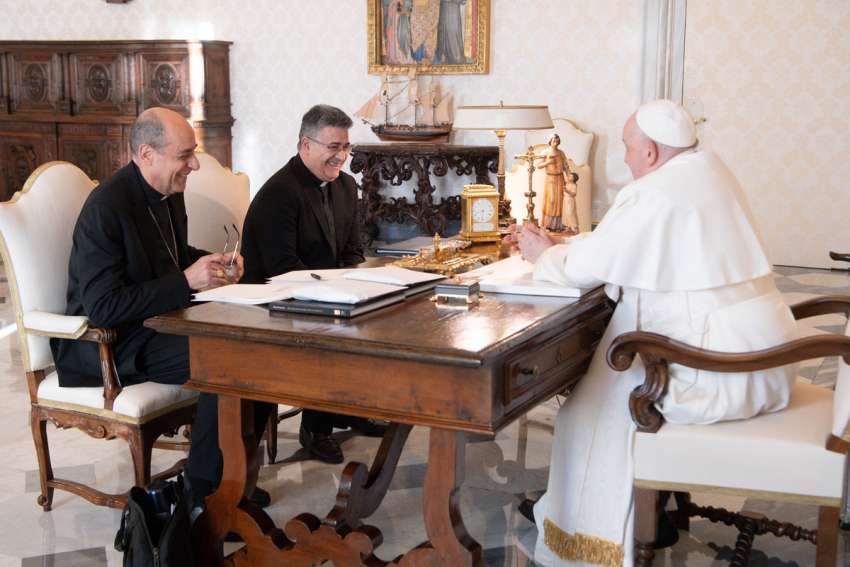Their understandable joy should not drown out charitably prudential voices cautioning that the Dec. 18 publication of Fiducia Supplicans (“Supplicating Trust”) leaves Holy Mother Church poised in a delicate, even precarious, balance.
For a real-world example of one potential consequence, Catholics might look to the plight of our separated fellow Christians in the Anglican Communion. The Church of England began blessing LGBT unions on Dec. 17, coincidentally the day before Rome unveiled its new directive. The mere lead-up to such a departure from traditional teaching was shattering enough for the Communion. Anglican bishops in Africa, Latin America, Asia and the Pacific now refuse to recognize Archbishop of Canterbury Justin Welby as leader of global Anglicanism. Welby has pledged to refrain from personally giving such blessings to maintain some measure of unity within the Communion. Only Heaven knows what fresh division tomorrow might bring.
It’s fairly said that Catholics hardly need to take lessons from the progeny of Henry VIII on how to proceed through history. Still, the physics of human reaction are always a sensible consideration when assessing current cause and future effect.
Supporters of the shift Fiducia Supplicans might insist any destabilizing consequences have already been weighed and found undaunting. The U.S. Conference of Catholic Bishops has given the declaration a 1.5 thumbs up by noting the text vigorously affirms Church teaching on the true nature of marriage. Nothing in that regard changes, the USCCB said, simply by permitting clergy to give informal blessings to LGBT couples, the divorced and remarried, or the cohabiting.
The document must be seen as a positive “effort to accompany people through the imparting of pastoral blessings because each of us needs God’s healing love and mercy in our lives,” according to the USCCB statement.
Canada’s Catholic bishops had yet to respond as The Register went to press. It seems a safe bet it will express similar optimism and concur with the minimalism of risk or change for the Church. Arguably, in light of our collective Catholic need for “God’s healing love and mercy,” it courts churlishness to answer otherwise.
The cautionary argument, however, offers two evident contraindications. The first involves sheer volume. If nothing changes, why the need for a 5,000-word text to say so? Even factoring for clerical tendency to homiletic long-windedness, that is a large load of verbosity to say: “Nothing to see here.”
In fact, much of the loquaciousness is taken up with what is acknowledged as a novel, and to the lay person dizzying, distinction between “pastoral” and “liturgical” blessings, which seems to emphasize the importance of the former while minimizing their meaning. In short, we all give and receive blessings for many things, even from ordained priests, but they should not be elevated to the level of the Church’s formal liturgical benedictions. The problem, of course, is that no one seeking a priestly blessing on their loving partnership wants it to be of a kind with the “bless you” that follows a sneeze.
Enter Fr. James Martin, the LGBT activist priest, who welcomed Fiducia Supplicans not as a safeguard of minimal change but as the minimum of what those in “irregular unions” require to be fully included Catholics. He hailed this week’s document as “a marked shift from the statement “God does not and cannot bless sin,” made by Pope Francis a mere two years ago. Then he quantified it as a “major step forward in the Church’s ministry to LGBTQ people.”
The operative word is “step.” Try this experiment at home to see why. Poised in a position of delicate, even precarious, balance, try taking just one step. Now imagine an eager multitude pressing you to take what they believe is your necessary next step forward. We need not embrace catastrophism to prudently assess the risks that might lie ahead.
What lies immediately ahead, fortunately, is the celebration of the birth of our Lord Jesus Christ, the Saviour of the World. We at The Register wish all our readers a peaceful, joyful, loving time to treasure the Gift we have received.


